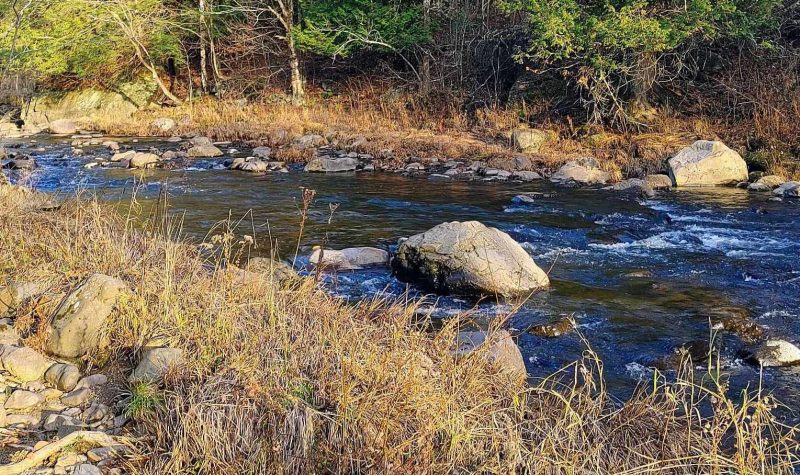The Municipal Regional County (MRC) of Brome-Missisquoi has adopted its Regional Plan for Natural Environments (RPNE) with the goal of conserving natural environments of regional interest and to address the number of environmental issues the region is experiencing.
The RPNE was adopted after Quebec’s MRCs became responsible for implementing a plan for their wetlands and water bodies under the “Act Respecting the Conservation of Wetlands and Bodes of Water.” However, the council of mayors for the Brome-Missisquoi MRC decided to include all natural environments to incorporate the RPNE as a part of the MRCs larger “Land use and Development Plan” as a tool for sustainable development when it comes time for land use planning. The Brome-Missisquoi MRC worked with a number of stakeholders and experts to gather knowledge about the region’s environmental issues, to identify the natural environments of interest, and to identify the natural areas to protect and restore through conservation and sustainability.
Nacim Khennache, Land Management Department Coordinator, told CIDI that there are six main environmental issues identified in the RPNE that are affecting the region’s natural environments, which the Brome-Missisquoi MRC wants to address through a number of concrete actions over the next ten years. Recognizing the significance of the region’s natural landscape heritage, Khennache emphasized that it’s important to preserve the natural landscapes that are valuable not only for environmental reasons, but to the lives of Brome-Missisquoi citizens.
“The first thing that I will note here is the balance between natural areas and developed areas. [These natural areas have cultural and recreational values.] We know that the natural environment in Brome-Missisquoi hold these values that are very important for the local community and the visitors too,” noted Khennache. “They provide opportunities for outdoor recreation, including hiking, bird watching, nature photography, which contribute to physical and mental health and the well-being of the population. Preserving these natural spaces allows people to connect with nature, appreciate their beauty, and find a sense of place and identity. It’s important to preserve the natural identity of Brome-Missisquoi and that’s what we are trying to do with the RPNE.”
According to Khennache, the Brome-Missisquoi MRC worked with a technical committee made up of ten experts, including conservation specialists Appalachian Corridor and Nature-Action Québec, to implement “a scientific method” to identify natural areas of importance and the environmental issues that the region is currently facing.
Highlighting some of these issues, Khennache said that a top priority for the MRC is addressing the degradation and loss of its wetlands and water bodies.
“This is a significant issue because of the pressure of development that we see in the MRC and the co-existence of the agricultural, forestry, and extractive activities that can affect wetlands and water bodies,” he explained. “As we know, wetlands and water bodies provide [benefits] for ecosystems, such as retention, filtration, and stabilization. They also serve as crucial habitats for many plants and animal species. Their degradation can lead to significant loss in benefits and biodiversity.”
The pollution of the region’s rivers and waterways and the quantity of groundwater and surface water are also major concerns for the MRC because they affect public health, mentioned Khennache.
“As we know, the pollution of surface water from agricultural erosion, runoff, and sewage overflow affect the integrity of wetlands and waterbodies. This pollution can affect water activities, such as swimming, boating, water sports, and in the worse case impact clean drinking water,” explained Khennache. “Another issue I can identify is the quantity of surface and groundwater. In 2021, the MRC experienced an unprecedented water shortage, as many regions in Quebec, due to a decrease in available surface and groundwater. This highlights the importance of sustainable water management to ensure long-term availability of resources.”
Other issues affecting the region's natural areas are flooding and bank erosion, the fragmentation of their natural habitat corridors, and a loss of ecological connectivity as a result of agro-forestry, noted Khennache.
Despite these environmental concerns, Khennache said that the MRC is taking “various means to ensure the conservation of natural environments of interest,” which are laid out in the action plan for the RPNE. These actions include support and engagement with stakeholders, sensitizing the population, and knowledge acquisition through field work.
Within the next ten years, there are a number of goals that the MRC of Brome-Missisquoi wants to meet with the RPNE. It hopes for collaborative efforts across the region to ensure the RPNE’s success.
“The goals are associated with our issues, for sure. (…) We also want to double the number of protected areas in the next ten years. We want to preserve all the wetlands and waterbodies that we have identified and we want to reduce vulnerability related to water supplies. (…) Those are the main objectives,” Khennache highlighted.
For more information on the RPNE.
Listen to the full interview below:


